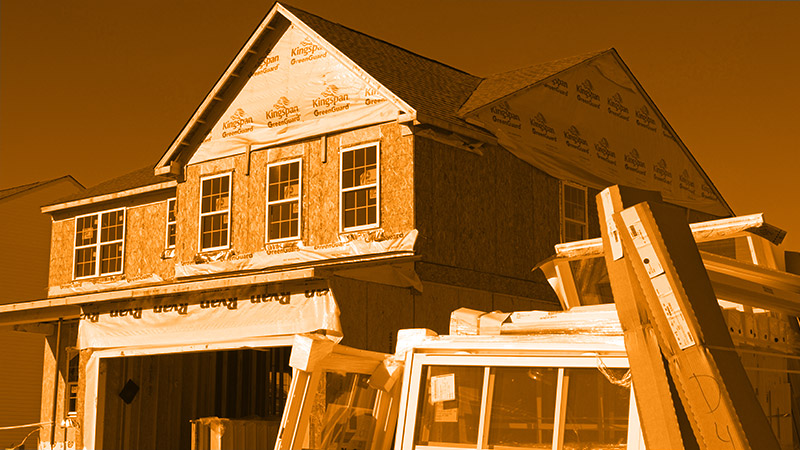What is stamp duty? And can you add it your mortgage in the UK?
One topic that confuses many is that of Stamp Duty.
In some cases, when you buy a new home, you must pay a stamp duty.
But what are the exact rules involved? What are the costs?
Let’s find out…
What is Stamp Duty?
What Stamp Duty is now is different from what it used to be. Wait, does that sound confusing?
Let’s explain!
Stamp Duty was originally introduced to the UK in 1694 as a temporary tax to raise funds for the war against France.
At the time, it was also charged on hats, medicines, and newspapers.
Because Stamp Duty proved to be such a successful way to raise funds for the government, it’s still imposed on UK citizens today.
A Stamp Duty nowadays is a tax on property in England and Northern Ireland. It doesn’t apply to all properties but does to some.
In England, it is called Stamp Duty.
In Wales, it’s called Land Transaction Tax; in Scotland, it’s called Land and Building’s Tax. Different regulations apply in each country.
Non-UK residents purchasing UK property can expect to pay Stamp Duty, Land and Building Tax or Land Transaction Tax.
One thing to note is that as a non-UK resident, you will be charged more – usually around 2% more than a UK resident would.
When Is Stamp Duty Required?
There are instances where Stamp Duty applies and other instances where it doesn’t.
This can depend on whether you’re purchasing residential property, commercial property, or new build.
Let’s look at each scenario below:
Stamp Duty on UK Residential Properties
Stamp Duty may apply to your residential property purchase in the UK.
For instance, for any residential property you buy, that’s over £250,000 (in England and Northern Ireland), you will have to pay Stamp Duty.
Unless you’re a first-time buyer, you won’t pay Stamp Duty on residential properties up to £425,000. You will pay Stamp Duty on any amount above that.
This deal only applies to residential properties below the price of £625,000.
In Scotland, you will pay Land Buildings Tax on any residential property that sells for more than £145,000.
However, first-time buyers are exempt from Land Transaction Tax in Scotland if the property is under £175,000.
In Wales, things work quite differently, with all residential properties that cost more than £225,000 demanding Land Transaction Tax.
Stamp Duty on UK Commercial Properties
Commercial property Stamp Duty is the same in Scotland, Northern Ireland, and England. Buyers must pay Stamp Duty on commercial properties that cost over £150,000.
You will only be charged Stamp Duty in Wales if the property you’re buying costs more than £225,000.
Stamp Duty on UK New Build Homes
New build homes in the UK are subject to the same Stamp Duties as residential properties are assigned.
If you’re in England or Northern Ireland, you will pay Stamp Duty on properties that cost over £250,000.
In Wales, you will pay Land Transaction Tax on properties that cost more than £250,000.
What Does UK Stamp Duty Cost?
The amount you will pay in Stamp Duty will depend on the value of the house/property.
For instance, there is 0% stamp duty on properties up to £250,000 in England and Northern Ireland.
5% Stamp Duty applies to properties between £250,000 and £925,000, 10% Stamp Duty applies to properties between £925,000 and £1,500,000, and 12 % Stamp Duty on properties over £1,500,000.
The figures are a little different in Scotland.
There is 0% Land Building Tax on property that costs up to £145,000, 2% Land Building Tax on properties that cost between £145,001 and £250,000, 5% Land Building Tax on properties that cost £250,001 to £325,000, 10% Land Building Tax on properties that cost between £235,001 and £750,000, and 12 % Land Building Tax on properties that cost more than £750,000.
Wales also presents different figures for Land Transaction Tax. There is 0% Land Transaction Tax on properties up to £225,000, 6% Land Transaction Tax on properties that cost between £225,001 and £400,000, 7.5% Land Transaction Tax on properties that cost £400,001 and £750,000, 10% Land Transaction Tax on properties that cost between £750,001 and £1,500,00, and 12% Land Transaction Tax on properties that cost more than £1,500,000.
When Are Buyers Required to Pay UK Stamp Duty Fees?
Stamp Duty must be paid after the completion date within a set time. This period is 30 days in Scotland and Wales, but for those in England, it’s only 14 days.
How can you pay the Stamp Duty?
It’s made quite simple with the help of your conveyancer or solicitor.
If your solicitor or conveyancer can’t help you, you must file and post a paper return to action the process.
Don’t Want to Pay Stamp Duty in the UK?
Here are a Few Tips to Help You Avoid Stamp Duty
Affording Stamp Duty may prove challenging for your budget.
However, if you want to avoid paying Stamp Duty, Land and Building Tax, or Land Transaction Tax in the UK, you can do that in several ways.
Here’s a brief list of ways to consider:
- Rather buy a house boat, caravan or motorhome as there is no Stamp Duty charged on these.
- If you are a first-time buyer, purchase a buy-to-let, as you won’t be charged second home Stamp Duty and can benefit from first-time buyer discounts.
- Buy property under £400,000.
- If a family member will use the home, you can avoid paying second property Stamp Duty by putting the deed in their name and gifting them the deposit money.
Paying Stamp Duty in the UK Conclusion
Stamp Duty is a reality of the property market in the UK.
While Stamp Duty is unavoidable, there are ways around it if you’re willing to purchase a property with a lower value.
Remember to factor the cost of the Stamp Duty into the cost of a property when you’re interested in purchasing it.
Call us today on 01925 906 210 or contact us. One of our advisors can talk through all of your options with you.











